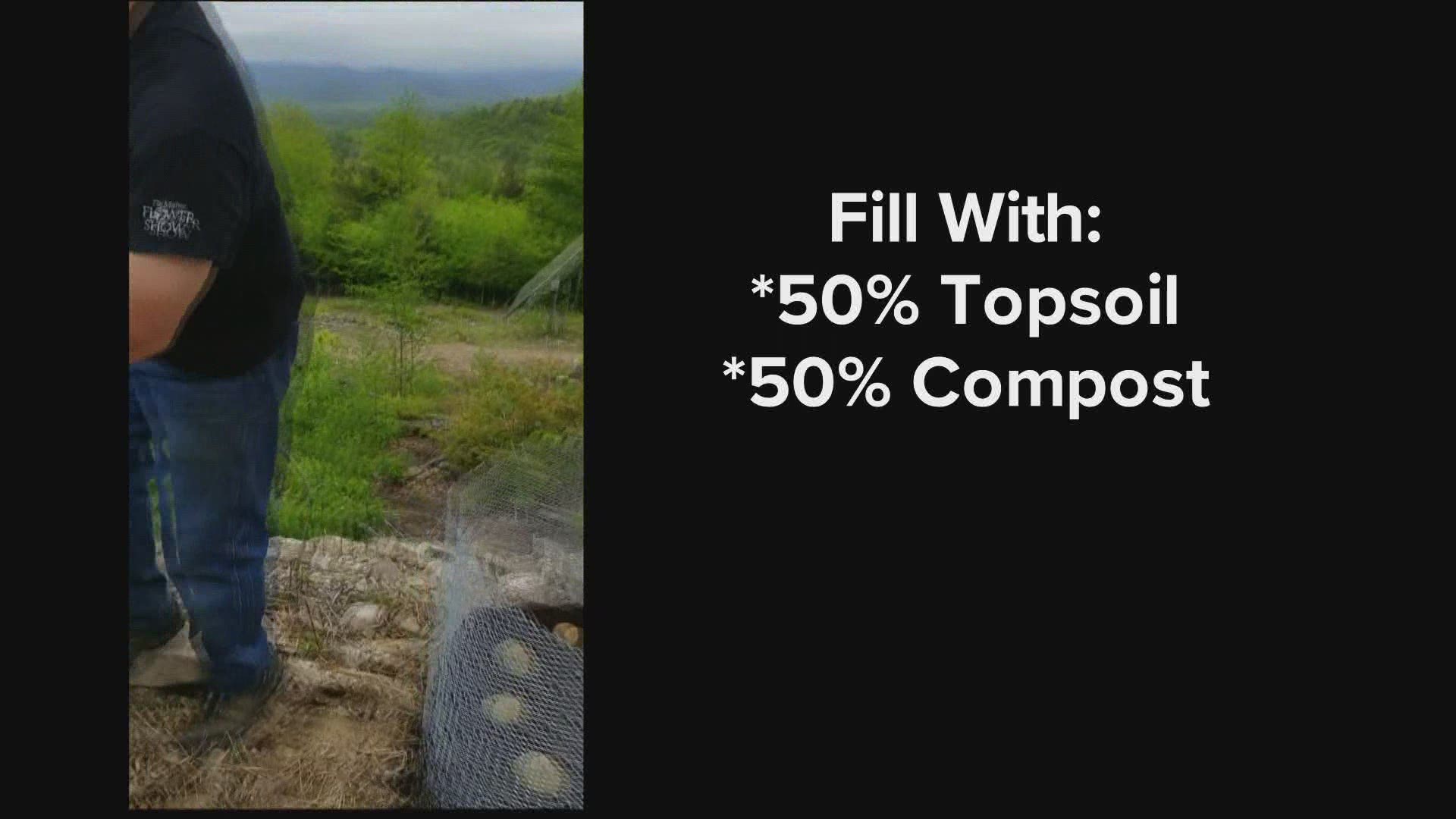FRYEBURG, Maine — Farmers in the County have been digging potatoes for generations. Potatoes can be grown at home, especially if you have loose soil, full of organic matter and good drainage. If you don't, you can always grow them in raised beds.
Mark Faunce, the Chairperson of the Maine Flower Show, grows them that way. He lives in a very hilly area, where in-ground gardening is tough. His suggestion: use wire mesh cylinders. They are easy to construct, and produce high yields of potatoes.
Mark fills these cylinders about half way with 50% topsoil and 50% compost. He then cut potatoes in half, provided they have an eye on each side. Those are the little buds that if left alone for too long, will start to sprout. If there are not eyes on each half, then just leave the potato whole. Do not use potatoes purchased at the grocery store for seed pieces. They are probably treated to not sprout. Buy certified seed from a reputable seed seller.
You also might want to test your soil. Potatoes like acidic soil, which is common in Maine. A soil pH of 5.3 to 6 is typical for potato production.
You can plant each potato half about 10 to 12 inches apart, and then cover with 3 inches of soil.
If grown in the ground, you have to continue to monitor them and mound soil into the base when the sprouts get to be about 10 to 12 inches tall. When you grown them in a container, you just add more soil so that the bases are supported. Continue to add soil each time the sprouts each that height.
According to the Maine Co-operative Extension, late blight and early blight are two potato diseases that are common in home gardens. Of the two, late blight is the real threat. Home gardeners should protect the growing potato plants with fungicides containing mancozeb, maneb or chlorothalonil. These are available at garden centers and should be applied at seven-day intervals, or as directed on the label. You may wish to consider potato varieties with some late blight resistance, such as “Kennebec.”
The Co-Operative Extension says "Colorado potato beetles and aphids are common potato insect pests. There are insecticide/fungicide combination products that will control both these insects and foliar diseases." There are insecticides and fungicides that are approved for organic gardens.
Early weed control is essential for good potato yields. That is usually controlled by adding soil or hilling the plants growing in the ground.
How do you know when to harvest them? You actually have to wait until all the foliage has withered and died back before harvesting mature potatoes. To test, dig up one of the potatoes and rub the skin with your fingers. If the skin does not run off easily, the potatoes are ready for harvest.
RELATED: Your Garden: Raised Bed Gardening
RELATED: Mainers go gaga over growing veggies

